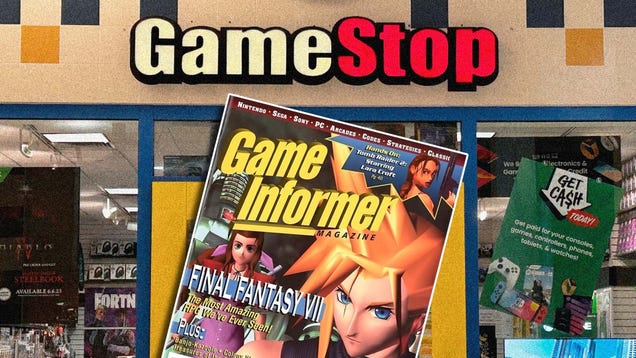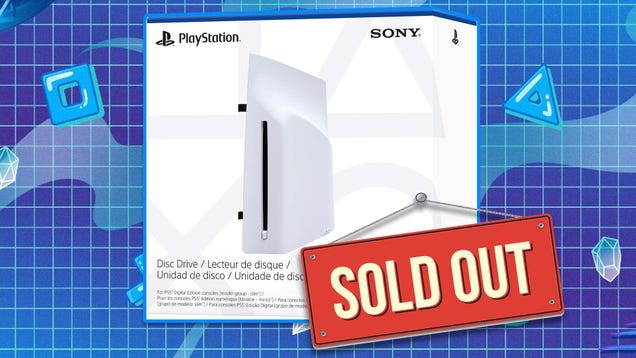Game Informer, the longest-running gaming magazine in the U.S., is officially dead and GameStop killed it. It began publishing in 1991 and has been one of the last remaining physical gaming magazines in the world, with cover stories that continued to share deep dives and exclusive interviews on the biggest games coming out, from Final Fantasy: VII Rebirth to Star Wars Outlaws. No more.
Suggested Reading
The Week In Games: Return To Hyrule
Suggested Reading
Staff at the magazine, which also publishes a website, weekly podcast, and online video documentaries about game studios and developers, were all called into a meeting on Friday with parent company GameStop’s VP of HR. In it they were told the publication was closing immediately, they were all laid off, and would begin receiving severance terms. At least one staffer was in the middle of a work trip when the team was told. The sudden closure of Game Informer means that issue number 367, the outlet’s Dragon Age: The Veilguard cover story, will be its last.
The Game Informer Twitter account posted the following statement online today, but sources tell Kotaku it was not written by anyone on the team, which was still in the process of making sure everyone on staff was informed about the news:
After 33 thrilling years of bringing you the latest news, reviews, and insights from the ever-evolving world of gaming, it is with a heavy heart that we announce the closure of Game Informer.
From the early days of pixelated adventures to today’s immersive virtual realms, we’ve been honored to share this incredible journey with you, our loyal readers. While our presses may stop, the passion for gaming that we’ve cultivated together will continue to live on.
Thank you for being part of our epic quest, and may your own gaming adventures never end.
In its heyday, Game Informer was the leading monthly magazine among a group of publications that included Game Pro, Electronic Gaming Monthly, and several others, as well as platform-centric periodicals like Nintendo Power. The Minneapolis-based print publication had since become the only major one left standing in the U.S., known for monthly reviews, editor columns, and wide-ranging previews for upcoming games and access to big names for interviews that few others in the industry could match.
Game Informer was purchased by GameStop along with its previous owner, gaming retail competitor FuncoLand, in 2000. This essentially gave the publication its own one-magazine newsstand across thousands of stores, with GameStop customers getting a yearly subscription as one of the perks for signing up for the store’s rewards program. In the days before online gaming blogs and YouTube channels were ubiquitous, thumbing through the pages of Game Informer was the main way many players experienced the world of games beyond whatever few they and their friends owned.
In recent years, however, as GameStop has spiraled following the collapse of physical game sales, the massive corporation became an albatross around Game Informer’s neck, weighing it down with clueless middle-managers and contradictory and ever-shifting directives. Despite its meme stock explosion, which has netted it billions in the bank, GameStop has continued cutting jobs across its business, including nearly annual rounds of layoffs at Game Informer.
Longtime editor-in-chief Andy McNamara left to join Electronic Arts in 2020, with departures of other senior staff following amid the ongoing crunch. After dropping physical issues of Game Informer from its rewards program, GameStop finally let the publication start selling directly to subscribers again a couple of months ago. It seemed like a new, more independent beginning of sorts, or at least a prelude to the decades-old legacy outlet finally getting spun-off or sold.
Game Informer’s closure comes as GameStop CEO Ryan Cohen continues shit-posting about the 2024 election. In an email to staff last year, the executive called for “extreme frugality” and criticized “money wasters” who didn’t contribute to the company or its success. He’s currently being sued by the former company behind Bed, Bath, and Beyond for $47 million in insider trading profits.











